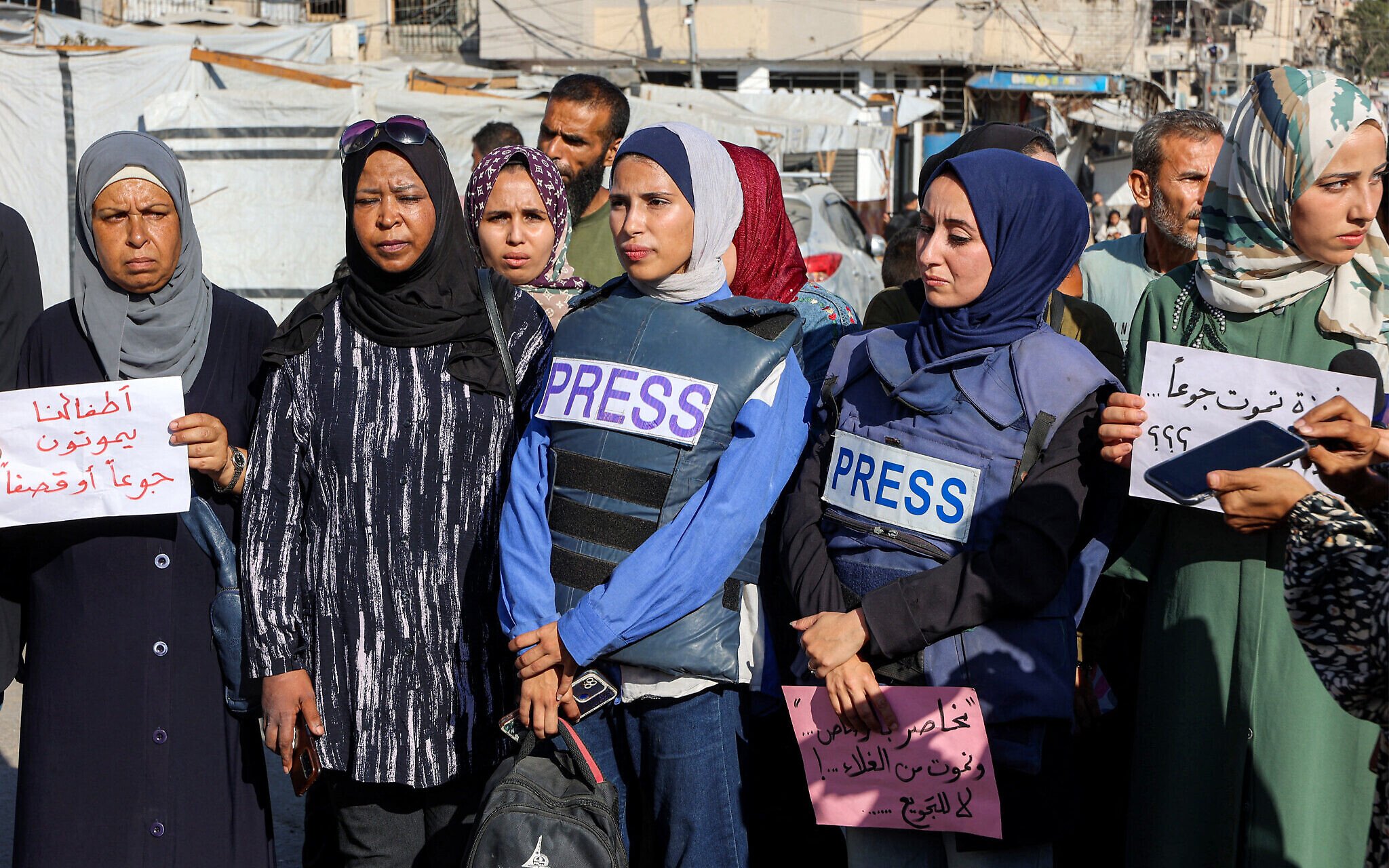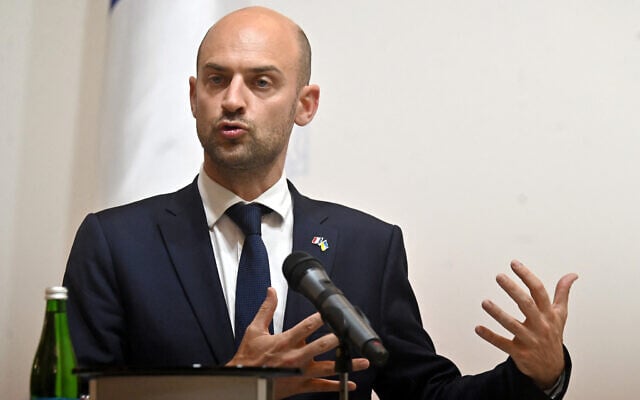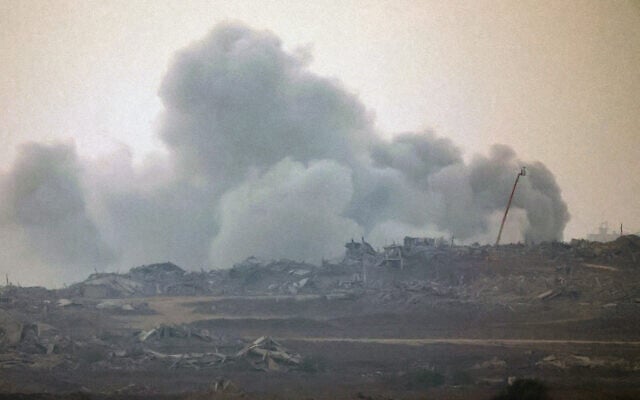



PARIS, France — French Foreign Minister Jean-Noel Barrot on Tuesday urged Israel to allow foreign press into the besieged Palestinian territory of Gaza, as warnings of famine mount after 21 months of war.
“I ask that the free and independent press be allowed to access Gaza to show what is happening there and to bear witness,” he told France Inter radio in an interview from eastern Ukraine.
He spoke after the AFP news agency warned that the lives of Palestinian freelance journalists it was working with in Gaza were in danger due to starvation and urged Israel to allow them and their families to leave the coastal territory.
Asked if France would help evacuate these stringers, Barrot said France was “addressing the issue.”
“We hope to be able to evacuate some collaborators of journalists in the coming weeks,” he said.
Several organizations, including the United Nations, have issued numerous similar statements throughout the war, urging Israel to grant access to foreign press. The government has rebuffed the requests, saying the situation in Gaza is too dangerous to allow access without military escort.
Last year, the High Court ruled that Israel could continue barring foreign journalists from the Strip, citing ongoing security concerns after months in which only Gazans or correspondents accompanied by the army could report from the enclave.
In their ruling, High Court justices Ruth Ronen, Khaled Kabub, and Daphne Barak-Erez accepted the Defense Ministry’s stance that the escorted tours provided an appropriate measure of press freedom given “extreme security concerns at this time and concrete security threats that go with approving entry permits for independent journalists.”
On Monday, a group of journalists at AFP called the Société des Journalistes (Society of Journalists) sounded the alarm, urging “immediate intervention” to help reporters working with the agency in Gaza.
The SDJ cited the example of one such freelancer, a 30-year-old living with his family in Gaza City, who reported on Sunday that his older brother “fell because of hunger.”
“We have lost journalists in conflicts, we have had injuries and prisoners in our ranks, but none of us can remember seeing a colleague die of starvation,” it said.
AFP responded in a statement posted on X and Instagram.
“Since October 7, Israel has prohibited access to the Gaza Strip for all international journalists,” the statement said, referencing the date in 2023 when Hamas-led terrorists rampaged through southern Israel, murdering some 1,200 people, mostly civilians, and taking 251 hostages to Gaza, sparking the ongoing war.
“In this context, the work of our Palestinian freelancers is crucial to inform the world,” it said.
“But their lives are in danger, which is why we urge the Israeli authorities to allow their immediate evacuation along with their families.”
Israel has presented evidence that several Palestinian journalists working in Gaza were active members of terror groups like Hamas.
AFP evacuated its eight staff members and their families from Gaza between January and April 2024.
Barrot urged an “immediate ceasefire” after Israel on Monday expanded military operations to the central Gaza city of Deir al-Balah.
“There is no longer any justification for the Israeli army’s military operations in Gaza,” he said.
“This is an offensive that will exacerbate an already catastrophic situation and cause new forced displacements of populations, which we condemn in the strongest terms.”
The IDF launched the latest offensive as talks on a ceasefire-hostage release deal failed to yield a breakthrough. The area is one of the few places in the Strip where the IDF has, until now, not operated with ground forces because it believed Hamas to be holding hostages there, though it has conducted airstrikes in the city. Hamas has vowed to execute captives if the IDF approaches.
The Hostages and Missing Families Forum also criticized the offensive earlier this week, saying it was “shocked and alarmed” at the decision and demanded the government explain the rationale behind it.
The IDF has long said it doesn’t operate in areas in which it knows that hostages are located, though former captives have testified to coming under Israeli fire that nearly cost them their lives. Six hostages were executed last year in Rafah after troops unknowingly approached an area near where they were being held.


